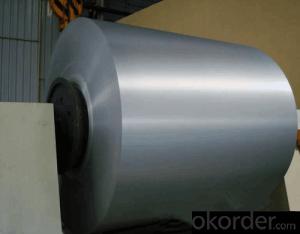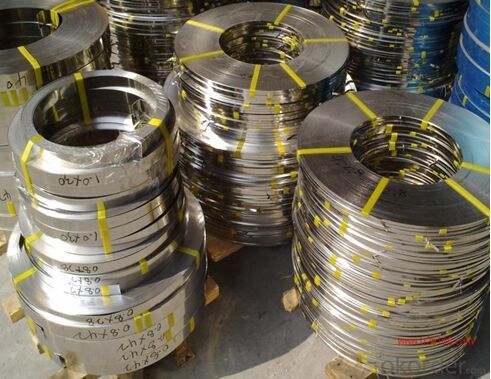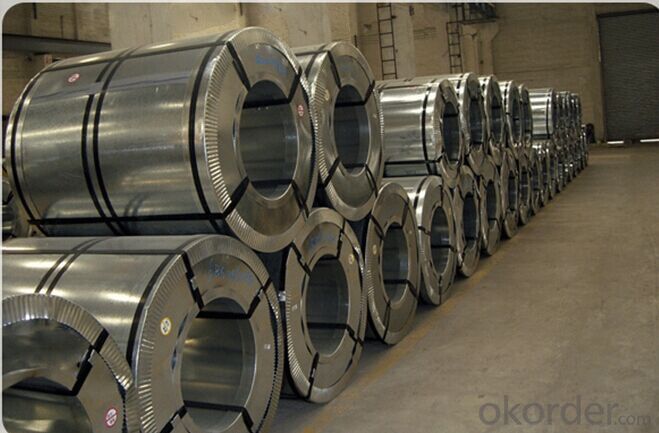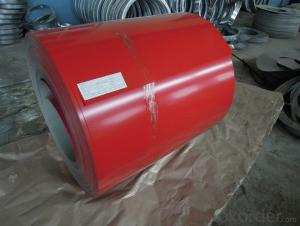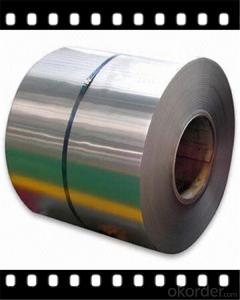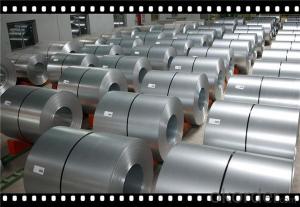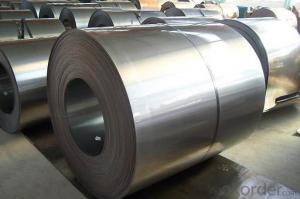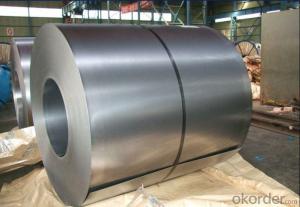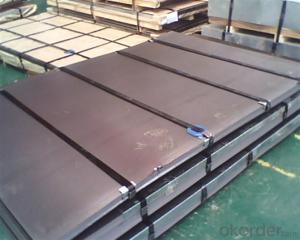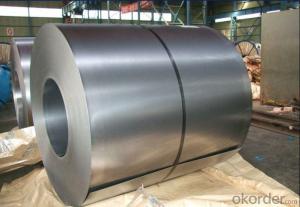CNBM Cold Rolled 201 Stainless Steel Coil,304 Stainless Steel Coil,430 Stainless Steel Coil
- Loading Port:
- Shanghai
- Payment Terms:
- TT OR LC
- Min Order Qty:
- 10 m.t.
- Supply Capability:
- 10000 m.t./month
OKorder Service Pledge
OKorder Financial Service
You Might Also Like
1,the specification of the cold rolled 201 stainless steel coil,304 stainless steel coil,430 stainless steel coil
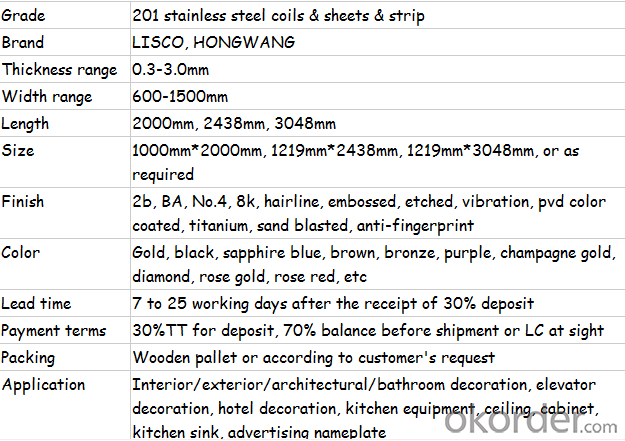
2,the chemical composition of the cold rolled 201 stainless steel coil,304 stainless steel coil,430 stainless steel coil
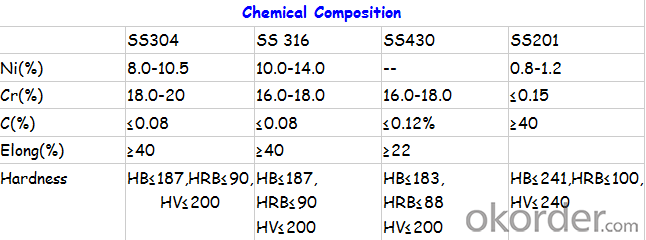
3,Stainless steel maintenance:
(1) Regular cleaning and maintenance
(2) Pay attention to prevent the occurrence of the phenomenon of surface scratches
(3) Use soap, weak detergent or warm water to remove surface dust, dirt
(4) In addition to the surface of the binder with alcohol or an organic solvent (ether, benzene)
(5) Use neutral detergent or ammonia solution in addition to surface oil
(6) With 10% nitric acid or abrasive detergent in addition to the surface of the embroider caused by the dirt.
4,our related products
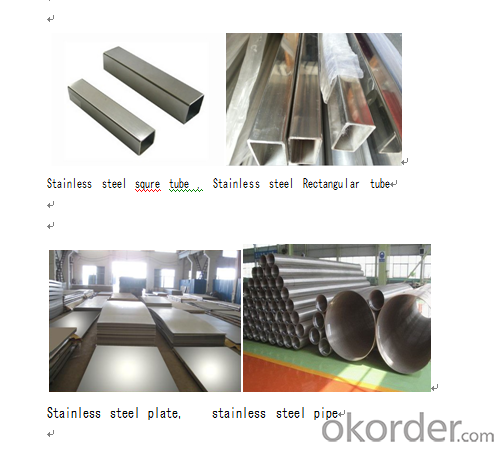
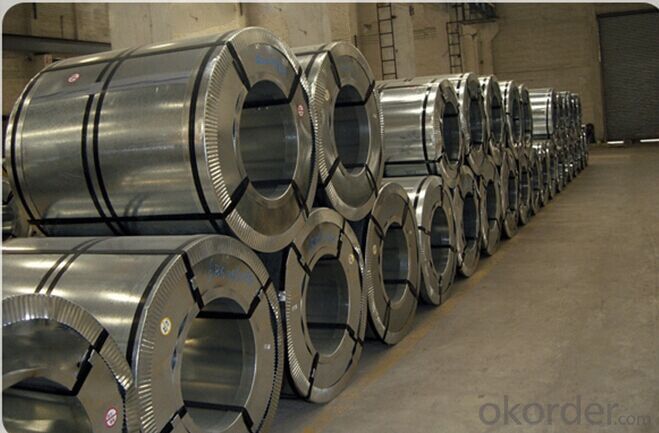
5,FAQ
Q: WHAT ARE YOUR ADVANTAGES?
A: 1. We have a specialized team in dealing with all the documents required by customers. We aim to zero error to save money and time for client. 2. We have a strict quality control from production to delivery. 3. We take use of advanced system and tool to improve working efficiency and control every step. 4. Professional sales team to serve customers. 5. Samples can be provided as your requirements. 6. Professional packing team which keep every packing safely.
Q: WHAT ARE YOUR MAIN PRODUCT?
A: We are specializing in providing cold rolled 201/410/430 Stainless Steel Coil / Stainless Steel Strip / Stainless Steel Sheet / Stainless Steel Plate, Stainless Steel Circle, Stainless Steel tube / Stainless Steel Pipe Sheets.
Q: CAN I GET FREE SAMPLE?
A: YES. We can provide free sample. However, you should be responsible for the transportation freight. Please tell us your express account or please send us the transportation freight of samples firstly, then we can arrange sample delivery.
Q: HOW MUCH THE TRANSPORTATION FREIGHT WILL BE FOR THE SAMPLES?
A: The freight depends on the weight and packing size and your area.
Q: What is the application of 400 series stainless steel?
A: 410S stainless steel and 430 stainless steel are widely used for: kitchenware, tableware, cutleries, stainless steel pots, plates & bowls, sinks, gas stove, disinfection cabinet, household appliances, construction decorations etc. 409L stainless steel is usually used for exhaust pipe.
- Q: How are steel coils used in the production of metal fixtures?
- Steel coils are used in the production of metal fixtures as they are often the starting point for manufacturing processes. These coils are unwound and cut into specific lengths, which are then shaped, bent, and welded to create various metal fixtures such as shelves, brackets, and frames. The steel coils provide a consistent and high-quality raw material that can be easily formed and manipulated to meet the desired specifications of the fixtures being produced.
- Q: How do steel coils contribute to the marine equipment industry?
- Steel coils contribute to the marine equipment industry by being a crucial component in the manufacturing of various marine equipment such as ships, boats, and offshore structures. These coils are used in the construction of hulls, decks, and other structural parts, providing strength, durability, and corrosion resistance. Additionally, steel coils are used in the production of marine equipment components like pipelines, storage tanks, and marine engines, ensuring their reliability and performance in harsh marine environments.
- Q: For some reason, if you rub iron oxide or lodestone (both very crumbly, dark, mineral-like materials) into soft, unhardened steel, their particles actually get stuck into the surface of the steel (that is, darkening it). My question is, how does this work? How come iron oxide and lodestone can get stuck, and how come other materials (like silicone carbide, for example) do not?My second question is, are there any materials that can get stuck into steel, that is also blue in color, and how would I best obtain it?
- If you look at the surface of untreated steel even with a low power microscope you will see a surface that is far from smooth, there are pits and occlusions dotting the surface. Steel is not polished when you see it this way so the only treatment to the surface was the extrusion process or forming done on it by the presses. Iron oxide has a very small particle size and when pulverized into a powder it can easily fill the pits and voids in the steel surface coloring it.
- Q: I work in a steel foundry 10-12 hours a day where we melt and pour stainless steel tubes. The pour temperature for some of them is very close to the boiling point of stainless steel (about 3800 degrees) because it has to be VERY liquid for the application we use it. Anyway, it does boil a little and we breath in the vapours which I can assure you ARE indeed vapourized stainless steel (it collects and cools on everything and makes a nice shiny coating). Ok, so to the question, does breathing vapourized stainless steel all day pose a health risk such as cancer? Anyone know? I'm just curious.
- you okorder
- Q: rust is not a issue. i was looking a D2 steel but heard story's of it chipping and breaking
- A okorder /
- Q: If I wear a pair of thick wool socks, is walking around in the snow with steel-toed boots going to be a problem? I'm wondering if the steel will make my toes too cold.
- should be ok and not cold if you go by what is written in the posting you quoted however if you are thinking of buying them just for the snow i would consider something else much cheaper. however if you already have them then not a problem, i suggest you give it a test run.
- Q: Steel is a mixture of Iron Carbon . So , is steel a metal or non - metal ?
- Steel is an alloy mostly made of metallic elements. You really wouldn't classify steel as a metal or a nonmetal. That terminology is mostly used with pure elements.
- Q: What are the common coil sizes available for steel coils?
- The steel coil sizes available for different industries and applications vary. However, there are standard sizes commonly used across sectors. These sizes include coil widths of 36 inches, 48 inches, 60 inches, and 72 inches. In terms of coil diameter, the most common sizes range from 20 inches to 24 inches. Furthermore, coil weights can vary greatly depending on the type of steel and its intended use, ranging from a few thousand pounds to tens of thousands of pounds. It is important to note that these sizes can differ among steel manufacturers, so it is advisable to consult the specific supplier or industry standards to determine the available coil sizes for a particular steel product.
- Q: How do steel coils contribute to the manufacturing of electrical appliances?
- Steel coils are essential components in the manufacturing of electrical appliances as they are used to create the core of transformers and electromagnets. These coils, made from steel, provide the necessary magnetic field required for the functioning of electrical appliances such as refrigerators, televisions, and washing machines.
- Q: What are the different grades of steel used for manufacturing coils?
- There are several grades of steel that are commonly used for manufacturing coils. These grades are chosen based on their specific properties and suitability for different applications. Some of the most common grades of steel used for manufacturing coils include: 1. Low carbon steel (mild steel): This grade of steel is often used for manufacturing coils as it is relatively inexpensive and has good formability. It is suitable for applications that require low strength and high ductility, such as automotive components and construction materials. 2. High carbon steel: This grade of steel is known for its high strength and hardness. It is commonly used for manufacturing coils that require high tensile strength, such as springs and wires. 3. Stainless steel: Stainless steel is a corrosion-resistant alloy that contains a high percentage of chromium. It is commonly used for manufacturing coils that require resistance to corrosion and oxidation, such as in the food industry, medical equipment, and automotive applications. 4. Galvanized steel: Galvanized steel is coated with a layer of zinc to protect it from corrosion. It is commonly used for manufacturing coils that will be exposed to harsh environmental conditions or for applications that require excellent durability, such as roofing materials and electrical appliances. 5. Alloy steel: Alloy steel is made by adding elements such as manganese, nickel, chromium, or molybdenum to carbon steel. This improves its strength, hardness, and resistance to wear and corrosion. Alloy steel coils are commonly used in applications that require high strength and toughness, such as in the aerospace and automotive industries. It is important to select the appropriate grade of steel based on the specific requirements of the application to ensure optimal performance and longevity of the coils.
Send your message to us
CNBM Cold Rolled 201 Stainless Steel Coil,304 Stainless Steel Coil,430 Stainless Steel Coil
- Loading Port:
- Shanghai
- Payment Terms:
- TT OR LC
- Min Order Qty:
- 10 m.t.
- Supply Capability:
- 10000 m.t./month
OKorder Service Pledge
OKorder Financial Service
Similar products
Hot products
Hot Searches
Related keywords
